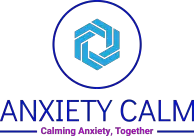Are you tired of feeling overwhelmed by worry? Take control of your anxiety and conquer excessive worry with practical strategies.
Behavioral therapy, deep breathing exercises, exercise, journaling, meditation, and socializing can all help combat anxiety. Mindfulness meditation, in particular, has been proven as effective as medication in reducing anxiety.
Recognizing the impact of excessive worry is the first step towards finding serenity and developing coping mechanisms.
Seek professional help if anxiety becomes a significant barrier in your daily life. Healthcare professionals are ready to guide and support you on this journey.
Key Takeaways
- Anxiety is a sustained, excessive worry related to future threats that can have a significant impact on daily life, work, relationships, and overall happiness.
- There are various strategies to combat anxiety, including behavioral therapy, deep breathing exercises, regular exercise, journaling, meditation, reading relaxing materials, socializing, seeking guidance from healthcare professionals, exploring spirituality, and reframing negative thoughts.
- Mindfulness meditation, which involves being intensely aware of the present moment, can be as effective as medication in reducing anxiety and shifting focus away from anxious thoughts.
- It is important to recognize anxiety, seek professional help if necessary, and develop coping mechanisms to address excessive worry and its adverse effects.
Understanding the Impact of Excessive Worry
Excessive worry can have a significant impact on your daily life, work, relationships, and overall happiness.
When you constantly worry, it can strain your relationships with loved ones. Your excessive anxiety may cause you to become irritable, distant, or preoccupied, which can put a strain on your connection with others. Over time, this can lead to a breakdown in communication and intimacy, affecting the quality of your relationships.
Furthermore, the long-term effects of excessive worry can be detrimental to your well-being. It can lead to chronic stress, which can have negative effects on your physical and mental health. It may contribute to the development of conditions like depression, insomnia, and even heart disease.
It is important to recognize the impact of excessive worry and take steps to manage it effectively for the sake of your relationships and long-term health.
Behavioral Therapy: A Powerful Tool Against Anxiety
Try behavioral therapy as a powerful tool to combat and manage your anxiety. Behavioral therapy techniques have been proven effective in reducing anxiety symptoms and improving overall well-being.
Here are three alternative treatments that can help you take control of your anxiety:
- Cognitive Behavioral Therapy (CBT): This type of therapy focuses on identifying and challenging negative thought patterns that contribute to anxiety. By changing your thoughts, you can change your feelings and behaviors.
- Exposure Therapy: This approach involves gradually exposing yourself to feared situations or triggers, helping you build resilience and reduce anxiety over time. It can be highly effective in treating specific phobias and panic disorder.
- Relaxation Techniques: Practices such as deep breathing, progressive muscle relaxation, and guided imagery can help calm the mind and reduce anxiety symptoms. These techniques can be used in combination with other therapies for maximum benefit.
Harnessing the Power of Deep Breathing
Take a moment to harness the power of deep breathing, as it can be a valuable tool in reducing anxiety and promoting a sense of calm. Breathing techniques are a fundamental aspect of mindfulness exercises, which aim to bring awareness to the present moment.
By focusing on your breath, you can activate the body’s relaxation response and counteract the stress response associated with anxiety. One effective breathing technique is called diaphragmatic breathing. This involves breathing deeply into your belly, rather than shallowly into your chest.
To practice diaphragmatic breathing, sit or lie down in a comfortable position. Place one hand on your chest and the other on your abdomen. Breathe in slowly through your nose, allowing your abdomen to rise and filling your lungs with air. Exhale slowly through your mouth, feeling your abdomen fall. Repeat this process for a few minutes, focusing solely on your breath.
As you engage in deep breathing exercises, you may notice a decrease in anxiety symptoms and an increase in feelings of calmness and relaxation.
The Role of Exercise in Calming Anxiety
Engaging in regular exercise can help alleviate anxiety symptoms and promote a sense of calmness and relaxation. When it comes to calming anxiety, exercise plays a significant role. Here are three ways exercise can help ease anxiety:
- Releases endorphins: Physical activity triggers the release of endorphins, which are natural mood-boosting chemicals in the brain. These endorphins help reduce anxiety and improve overall well-being.
- Reduces muscle tension: Anxiety often manifests in muscle tension and tightness. Exercise, such as yoga or stretching, can help release that tension, promoting relaxation and a sense of physical calmness.
- Provides distraction: Engaging in exercise can divert your attention away from anxious thoughts and worries. Focusing on your body’s movements and the physical sensations can help break the cycle of anxious thinking.
In exploring alternative therapies for anxiety relief, incorporating regular exercise into your routine can be an effective and enjoyable way to promote calmness and alleviate anxiety symptoms.
Expressing Emotions: The Benefits of Journaling
When you journal your thoughts and emotions, you can gain clarity and find relief from anxiety. Journaling has been shown to have numerous benefits for mental health, including reducing anxiety symptoms. By putting your thoughts and emotions on paper, you can gain a better understanding of your feelings and the factors that contribute to your anxiety.
This process can help you identify patterns and triggers, allowing you to develop effective coping strategies. Additionally, journaling provides a safe space to express your emotions without judgment. You can explore your fears, worries, and frustrations, which can be cathartic and provide a sense of relief.
Techniques for expressing emotions through journaling include free writing, bullet journaling, and guided prompts. By incorporating journaling into your daily routine, you can harness its therapeutic power and find solace from anxiety.
Embracing Inner Peace: The Power of Meditation
To embrace inner peace and harness its power, incorporate meditation into your daily routine. Here are three mindfulness techniques and the benefits of guided imagery:
- Mindfulness Meditation: Engage in mindfulness meditation by being intensely aware of the present moment. Use breathing methods and guided imagery to reduce stress and shift your focus away from anxious thoughts. Recent research suggests that mindfulness meditation can be as effective as medication in reducing anxiety.
- Reduced Stress: Practicing mindfulness techniques, such as deep breathing and guided imagery, can help reduce stress levels. By focusing on the present moment and tuning into your senses, you can alleviate anxiety and promote a sense of calm.
- Improved Mental Well-being: Regular meditation can have a positive impact on your mental well-being. It can help improve concentration, enhance self-awareness, and promote emotional stability. By incorporating mindfulness techniques into your daily routine, you can experience the benefits of guided imagery and cultivate inner peace.
Relaxation Through Reading: Books to Soothe Anxiety
Immerse yourself in a good book to find solace and relaxation amidst anxiety. Reading has been found to have a positive impact on anxiety, providing a much-needed escape from the stressors of everyday life.
Books for anxiety can offer comfort, inspiration, and a sense of calm. Research has shown that reading can reduce anxiety by engaging the imagination, distracting from anxious thoughts, and promoting relaxation. It can transport you to different worlds, giving your mind a break from worry and allowing you to focus on something enjoyable.
Moreover, reading can improve mental health by increasing empathy, fostering self-reflection, and enhancing emotional well-being. So, next time you feel anxious, pick up a book and let the power of reading ease your mind and uplift your spirit.
The Importance of Social Support in Anxiety Management
Engaging with a supportive network of friends and loved ones can play a crucial role in managing and alleviating anxiety. When it comes to anxiety management, having a strong support system can make a significant difference.
Here are three ways in which social support can impact anxiety:
- Understanding and Validation: Having loved ones who understand your anxiety can provide validation and empathy, making you feel heard and supported. Their understanding can help alleviate feelings of isolation and create a sense of belonging.
- Emotional Support: Supportive friends and family can offer a safe space to express your feelings and fears. Talking to someone who cares can provide comfort and reassurance, helping to reduce anxiety levels.
- Support Groups: Joining a support group of individuals who experience similar challenges can be incredibly beneficial. Sharing experiences, learning coping strategies, and gaining insights from others can enhance your ability to manage anxiety effectively.
Seeking Professional Guidance: When to Consult a Healthcare Professional
If anxiety starts to significantly impact your daily life and relationships, it is important to consult a healthcare professional for guidance. They can help you determine the best course of action to manage your anxiety and improve your overall well-being. Seeking professional help is crucial when anxiety becomes a significant obstacle that affects your life for an extended period of time. It is also important to seek therapy if anxiety negatively affects your relationships or creates barriers in your personal and professional life. Additionally, if anxiety leads to feelings of isolation, hopelessness, or helplessness, it is essential to reach out for support. Consulting with a healthcare professional can provide you with alternative treatment options and help you develop coping mechanisms to conquer excessive worry.
| When to Seek Therapy | Alternative Treatment Options |
|---|---|
| – Anxiety persists for 6 months or more | – Behavioral therapy |
| – Anxiety negatively affects relationships | – Deep breathing exercises |
| – Anxiety leads to isolation and hopelessness | – Regular exercise |
| – Anxiety controls your life and triggers emotional or physical responses | – Journaling |
| – Anxiety creates barriers in daily life | – Meditation |
Finding Serenity in Spirituality: Exploring Inner Peace
To find serenity in spirituality and explore inner peace, start by incorporating mindfulness meditation into your daily routine. Mindfulness practices can help you develop a deeper connection with yourself and the world around you.
Here are three ways to explore mindfulness:
- Mindful Breathing: Take a few moments each day to focus on your breath. Notice the sensation of the air entering and leaving your body. This simple practice can help calm your mind and bring you into the present moment.
- Nature Walks: Find solace in nature by taking regular walks in natural settings. Pay attention to the sights, sounds, and smells around you. Connecting with the natural world can help reduce stress and promote a sense of peace.
- Gratitude Practice: Each day, take a moment to reflect on the things you are grateful for. This practice shifts your focus to the positive aspects of your life and cultivates a sense of appreciation.


